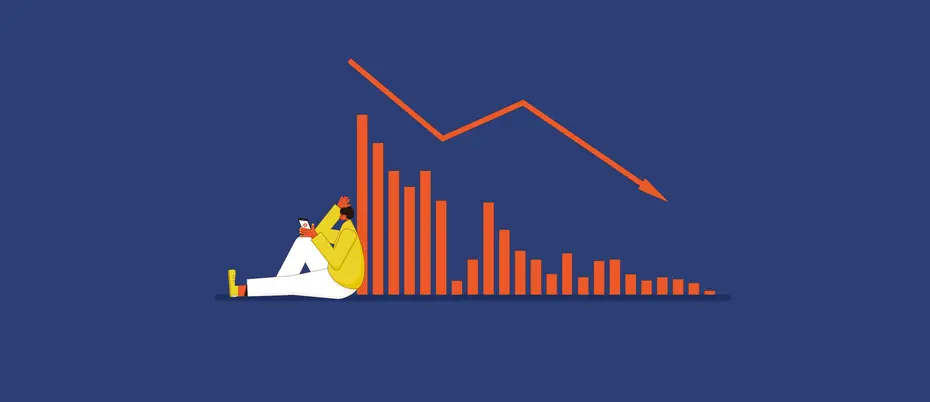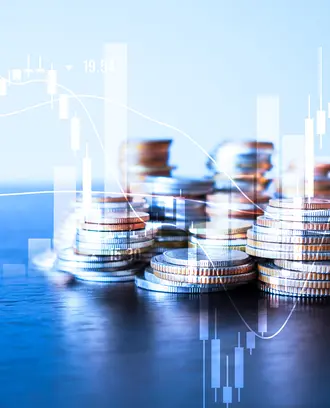Financial Markets
Retail investors lose big in options markets, research shows
Newbie retail investors are flocking to options markets, but they're making "a trio of wealth-depleting mistakes."
During the pandemic, people turned to the stock market and options markets, sending trading to all-time highs.
“Folks were home and bored and looking for something to do,” said a professor of accounting and finance at MIT Sloan. Retail trading platforms — like Fidelity and eToro — fueled this momentum with zero commission fees, making it “free to trade.”
“Many people who would normally gamble on sports decided to take their money and gamble in stocks and options,” So said. “There was a perfect storm of events that led to retail investors having an outsized role in the markets, as we saw with high profile events like GameStop and AMC.”
So is referring to incidents that took place last year, when retail investors banded together in online forums, such as Reddit, to prop up the stock prices of GameStop and AMC Entertainment, companies that were shorted by big Wall Street hedge funds. Doing so sent their stock prices to levels that were nowhere near their actual value and illustrated the role that retail investors can play in determining prices. Melvin Capital, a hedge fund that suffered big losses in the incident, announced earlier this year it was closing.
So wondered to what extent retail investors are influencing options markets, which “have an increasingly important place in financial markets,” he said. Even though options are more complex than stocks and especially tricky for first-timers, there's been huge growth, So said — logging a 35% increase in trades between 2020 and 2021, according to Options Clearing Corp. “A big driver of that is the growth in retail trading. Volume has increased [for options] far more than equities.”
Related Articles
The concern: “Options can be much riskier than equities for unsophisticated investors,” So said. “It requires only a small amount of money to buy an option. And if things go well, it can pay off huge, but in a lot of cases there's no payoff and investors lose 100% of their investment.”
A new paper by So and co-authors, “Losing is Optional: Retail Option Trading and Earnings Announcement Volatility,” attempts to “calibrate the influence that retail investors have on option prices and highlight some of the apparent mistakes that they’re making when trading,” said So, who is teaching a new class at MIT next spring, “Alphanomics,” which explores how to make investment decisions in the presence of a noisy market.
Retail investors make “a trio of wealth-depleting mistakes”
The authors constructed a dataset containing information on trades on individual-equity options from the Nasdaq Stock Market and 32,791 earnings announcements for U.S. publicly traded firms, both spanning between Jan. 1, 2010, and Feb. 28, 2021.
The authors chose to look at earnings announcements because it’s a set event that happens four times a year and is typically a period when “price swings are significantly more than other days.”
Looking at this granular data, the authors could see buying and selling behavior relative to the earnings announcement dates and found that retail investors made a “trio of wealth-depleting mistakes,” So said.
- They bid up prices for options of firms whose announcements were expected to trigger greater abnormal volatility, usually those that were covered more in the media and attracted more attention. Investors are “losing a lot of money because they’re effectively bidding up option prices higher than they should be based on the amount of realized volatility,” So said. “They’re moving prices in a way that’s bad for them.”
- They incurred “enormous” bid-ask spreads, which refers to the difference between the highest price a buyer is willing to pay and the lowest a seller is willing to accept. “This bid-ask spread is particularly large for options right before earnings announcements and something that I don’t think retail investors pay a lot of attention to,” So said. But it effectively amounts to 9% or 10% of your own investment,” which affects the “real take-home value” of that investment.
- They were reluctant to close options after earnings were announced, even though the volatility quickly subsided once the announcement occurred. “They effectively just sit on them, and as the price declines, so does their portfolio value,” So said. “They buy in a very short window, in the one week prior to earnings announcements, and then it takes them two weeks to close out these positions.”
Jointly, these three effects translate to losses for a range of 5% to 9% for earnings announcements on average and even more (10% to 14%) for those with high expected volatility, the researchers found.
Possible regulation in option markets
The Securities and Exchange Commission is currently considering new regulations focused on retail investor participation in the markets. There are also lawsuits that have been made against Fidelity and Robinhood. Earlier this year, the Financial Industrial Regulatory Authority fined Robinhood $70 million over “systemic supervisory failures” and accused the company of letting users make riskier trades than they were ready for.
“When we think about whether there is evidence that is consistent with companies letting in too many people who don’t know what they’re doing, one of the things you might look for is if people can do seemingly ill-advised things and lose money as a result,” So said. “That's what our research finds some evidence of,” he said, noting that traders in online forums have “openly admitted that they don’t know what they’re doing.”
This goes against what is supposed to happen. “If you want to trade options, you’re supposed to be able to prove that you know what you’re doing, that you’re a sophisticated enough investor who can handle the risks.”
Going forward, So expects conversations to continue around the impact that retail investors’ risk-taking has on the markets as well as their own welfare, and his next research project will look at the role of trading fees in the matter. “Some regulators feel like when you cut fees towards zero, it's encouraging people to trade more,” So said. His research will examine whether cutting fees contributes to more trading activity and if so, how it affects retail investor performance.
The paper was co-authored by MIT PhD student Tim de Silva and Kevin Smith, a professor at Stanford’s Graduate School of Business.
Read next: When companies report earnings, going first helps




